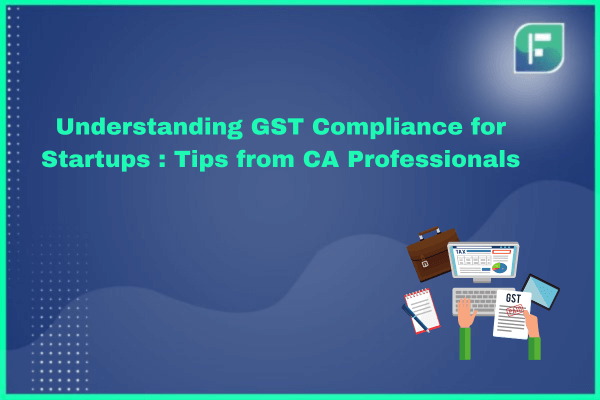Earlier, there was a multiple- taxed system used in India. There were a number of indirect taxes imposed on each stage of supply of goods and services. Due to which, the consumers had to pay very high tax sometimes. In order to be free from this complicated process, the GST was introduced on 1st July 2017. The goods and services tax was implemented after a lot of opposition from the general public. All the previous indirect taxes were rounded as one ,and imposed as one tax called GST.
Registering for GST has many benefits. Startups too prefer to register for GST because of the various benefits it has. Here we will learn about the GST compliance for startups in detail. If you are a startup owner struggling with the GST compliances of your business must go through the present writeup till its end line. It will make many of your things clear.
What is GST Compliance for Startups?
There is a body of people called the GST Council. This GST Council is made according to the Article 279A of the Constitution of India. It deals with all the issues related to the GST. The GST Council has 33 members in it. Out of which, only 2 members belong to the Centre. All the others are from States and Union Territories. There are many things businesses need to keep in mind while dealing with GST some of them are mentioned below:
- Maintenance of records
- Keeping invoices
- Keeping record of sales and purchases
- Method of Tax payment
- Filing of returns
It is very important for businesses to follow these rules. These rules are nothing but GST Compliance. In case the businesses or startups do not follow any rule, the fines or penalties may be imposed on them. The Government gives scores to the business depending on their compliance with the rules. This is called the GST Compliance rating.
What are the Three GST Compliance Rules in India?
There are mainly 3 compliance rules set by the GST Council. The businesses or startups have to follow these 3 rules given below:
Registration Compliance
The very 1st and obvious rule which businesses have to follow is the GST registration. For GST registration an online application form has to be filled. This form is available on the GST Portal. The link for the website is www.gst.gov.in. Not all businesses need to do the registration. The businesses who have to mandatorily register for GST are the ones who sell goods and turnover is up to or above 40 lakhs and also those who provide services and turnover is above 20 Lakhs.
Tax Invoice Compliance
It is compulsory for all the businesses to give an invoice to their customers. Whatever goods or services are sold, invoice must be given. The invoice must consists of all the necessary things in it such as :
- Invoice Number
- Invoice Date
- Name of the customer
- Address of the business
- Details of the goods sold
- Details of the quantity of the goods
- Rate of the Good
- Taxes imposed
- Discounts, if applied
- GST Identification Number or GSTIN.( unique number obtained by all businesses after successful registration of GST)
- Signature of the seller
All the above mentioned items have to be there in the invoice. If any of the sellers do not give invoice to the customers, a fine of Rs 10,000 is imposed on him. And if an incorrect invoice is given then Rs 25,000 fine is imposed. Hence, it is better to follow this compliance, than spending money unnecessarily on fines.
Compliance with the GST Return
GST returns are one of the most important things for a business. All the businesses who have registered themself have to follow the GST return rule.They have to choose the method of filing. They can either file the return monthly or yearly. The filing has to be done online on the GST portal. There are various kinds of forms, required to be filled for GST return filing. They are given below:
- GSTR-1: In this all the details of the sale have to be mentioned. This form has to be filed with the Government. After filing this, no tax is imposed.
- GSTR-3B: This return form must be filed by the business every month. A summary of all the sales, the input- tax credit and net- tax have to be mentioned properly.
- GSTR-9 : This return form is filed by the business every year. However, businesses with a turnover of 2 crore and more, only have to file it. It must contain all the details of the sales made and taxes paid in a year.This return is a combination of both the returns mentioned above, which are GSTR-1 and GSTR-3B.
Conclusion
GST compliance are rules set by the Government and these rules have to be followed by the businesses, be it small or big. It is up to the new businesses to register for GST. Registering for GST and GST compliance provide many benefits to the start-ups. Following the tips of professionals like Chartered Accountants, the new businesses can enjoy these benefits. They prevent businesses from facing losses. Instead, they help them obtain exemption from paying unnecessary taxes. As it is obvious that start-ups already lack funds. Therefore, taking help from professionals can help them save a lot of money. Professionals can also advise them on investments and expansion.






